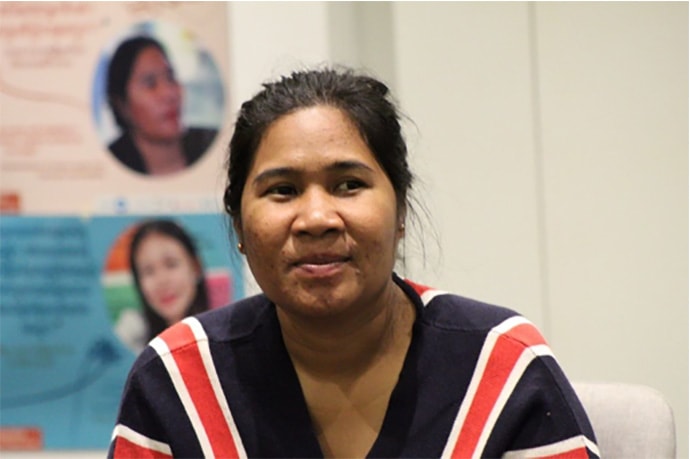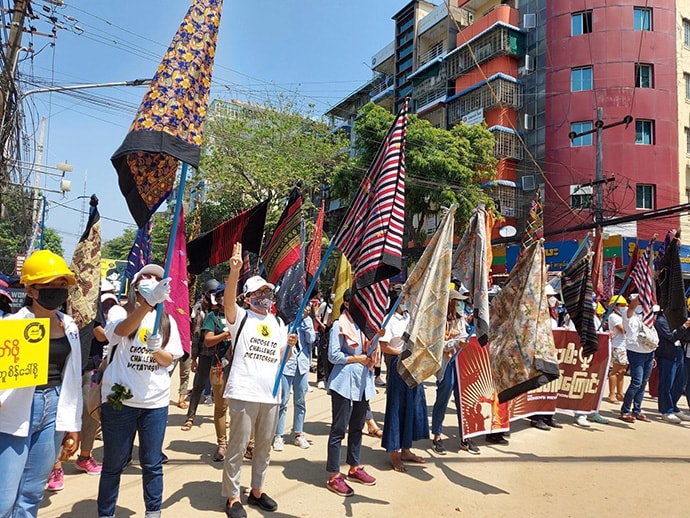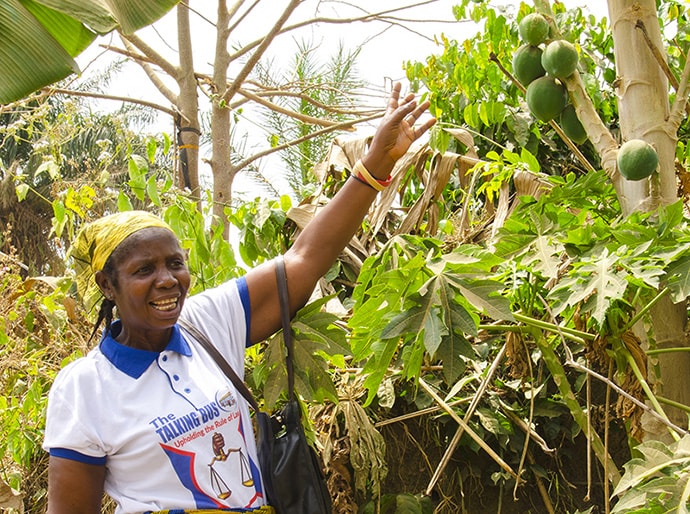Weaving Women’s Leadership for Change. A Safe and Motivational Space for Women in Cambodia

“My disability doesn’t define my future.”
Ms. Sum Sakon, WWLC Participant
Through Weaving Women’s Leadership for Change (WWLC), a Women Peace Makers’ program, Ms. Sum Sakon joined other women in a safe space to learn, inspire, celebrate, support, and share about themselves, and their leadership challenges. She joined the program in 2020 and became part of the second cohort.
Ms. Sum Sakon came from a humble background. Growing up in a large family in Prey Veng province, she was struck by polio as a child which impacted her ability to walk properly. Despite her disability, she was motivated to complete her high school education, even when family members did not support her going to school. She is now 36 years old, married, and has three children.
Before joining the WWLC program, Ms. Sum Sakon was skeptical and concerned about traveling alone for safety reasons. This concern was heightened by her limited mobility. She also worried about her limited educational background. Nevertheless, her experience in the program changed her mind. Her confidence grew,
“Personally, this program is very transformational. Everyone was given a safe space to talk, to express our concern and needs. I felt so relieved and close with others. I can see that everyone is very open-minded, open sharing, and very respectful to each other.”
The lessons learned on “gender and feminism” made a significant impact on Ms. Sum Sakon’s perception of society’s expectations of women.
“I started to value myself and love myself more. I used to be the kind of woman who likes to please others and care about others only. Now, I’ve changed my perspective that men and women are equal. There is no limitation on what we as women can accomplish.
I know how to help and pause myself through self-care like meditation and yoga . . . Gradually, I have noticed myself to be an open-minded person who understands other people’s feelings and builds good relationships with others. I have gained new knowledge and experience, and through WWLC, I want to become a mentor and advisor to support other women and my community. I want to show the world that my disability doesn’t define my future.”
Women Peace Makers, a Pangea partner since 2014, addresses issues of gender and peacebuilding with women and youth in Cambodia. Their holistic approach includes training women to prevent gender-based violence, engaging young people in dialogue on the roles of gender and ethnicity in Cambodian society, and producing creative, thought-provoking art projects to expose those issues in the country.

